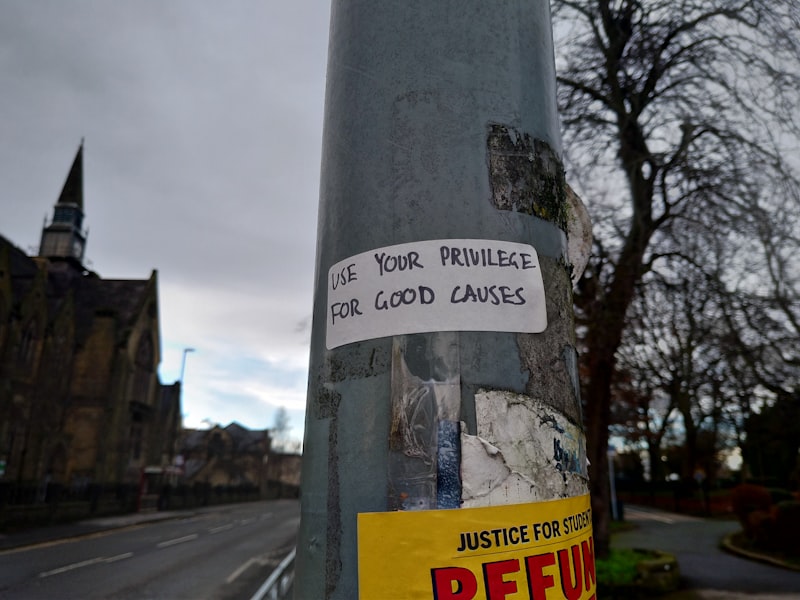- Violent dreams can be a form of communication from our subconscious, offering valuable insight into our lives and serving as a warning sign of spiritual distress.
- Strategies to uncover the meaning behind violent dreams include keeping a dream journal, reflecting on emotions, exploring archetypes, and seeking professional guidance.
- Common causes of violent dreams include stress, trauma, medication, and substance abuse, while the effects can disrupt sleep patterns and elicit emotional distress.
- Managing and coping with violent dreams involves creating a relaxing bedtime routine, managing stress levels, avoiding stimulants and substances, creating a sleep-friendly environment, and seeking professional support if needed.
Hey there! Have you ever had a dream that left you feeling shaken and confused? Well, today we’re going to dive into the intriguing world of investigating killer dream meanings. Understanding these dreams can provide valuable insights into our subconscious minds and help us make sense of the mysterious realm of our dreams.
Understanding the Spiritual Meaning of Violent Dreams

In this section, we will explore the spiritual meaning behind violent dreams and how we can use this knowledge to better understand ourselves and the world around us. Let’s dive into the depths of our subconscious and unlock the hidden messages behind these intense dreams.
1. The Role of the Subconscious in Violent Dreams
The subconscious mind plays a profound role in shaping our dreams, including those filled with violence. It acts as a conduit for our deepest emotions and serves as a gateway to our hidden thoughts and unresolved conflicts. Although the immediate meaning of a violent dream may be unclear, it is essential to recognize that dreams are a form of communication from our subconscious, offering valuable insight into our lives.
2. Interpreting Spiritual Distress from Violent Dreams
Violent dreams can often be interpreted as a sign of spiritual distress. They serve as a warning signal that something is amiss within our inner selves. These dreams may indicate unresolved issues, suppressed emotions, or even a fear of the unknown. It is crucial to listen to these messages and acknowledge their existence, as they can guide us towards personal growth and healing.
When faced with violent dreams, it is essential to take them seriously. They should not be brushed aside or dismissed as irrelevant. Instead, we must reflect upon their possible meanings in order to gain a deeper understanding of ourselves and our spiritual journey.
3. Strategies to Uncover the Meaning Behind Violent Dreams
Unraveling the spiritual meaning behind violent dreams requires introspection and exploration. Here are some strategies that can help us decipher the hidden messages within these dreams:
- Keep a Dream Journal
Start by recording your dreams in a journal immediately upon waking. Look for patterns, recurring themes, and symbols that may shed light on the meaning behind your violent dreams. - Reflect on Emotions
Pay close attention to the emotions you experience within your dream and how they relate to your waking life. Identifying the source of these emotions can provide valuable insights into the underlying meaning of your dreams. - Explore Archetypes
Dive deeper into dream symbolism by exploring the archetypal figures and objects that appear in your violent dreams. Understanding their symbolic significance can provide profound insights into your spiritual journey. - Seek Professional Guidance
If you find it challenging to understand the spiritual meaning behind your violent dreams, consider seeking guidance from a qualified psychotherapist or counselor specializing in dream analysis. Their expertise can help you navigate the complexities of your dreams and gain a deeper understanding of yourself.
By employing these strategies, we can begin to untangle the intricate symbolism within our violent dreams and decode their spiritual messages.
Common Causes and Effects of Violent Dreams

Violent dreams can be unsettling, leaving us feeling confused, scared, and unsure of their meaning. These dreams often involve images of physical aggression, such as fighting, shooting, or stabbing, and can sometimes be more subtle, such as feeling threatened or chased. While the interpretation of violent dreams can vary from person to person, there are some common causes and effects that many people experience. In this section, we will explore these common causes and effects of violent dreams, and discuss ways to manage and cope with them.
1. COMMON TRIGGERS OF VIOLENT DREAMS
There are several triggers that can contribute to the occurrence of violent dreams. These triggers vary from person to person and often depend on individual life experiences and circumstances. Some common triggers include:
- Stress
Stress is a significant trigger for violent dreams. When we experience high levels of stress, our minds can become flooded with fear and anxiety, which can manifest in our dreams as violence. - Trauma
Past traumas or experiences can also trigger violent dreams. Traumatic events can leave a lasting impact on our subconscious minds, causing them to resurface during dream states. - Medication
Certain medications, such as antidepressants and anti-anxiety medications, can influence the content of our dreams. Some medications may increase the likelihood of experiencing violent or intense dreams. - Substance Abuse
Substance abuse can also contribute to violent dream experiences. Drugs and alcohol can alter brain chemistry and disrupt normal sleep patterns, leading to more vivid and intense dreams.
It is important to note that while these triggers can contribute to the occurrence of violent dreams, not everyone will have violent dreams as a result of these triggers. Each person’s dream experiences are unique and influenced by a combination of factors.
2. PHYSICAL AND MENTAL IMPACT OF VIOLENT DREAMS
Experiencing violent dreams can have both physical and mental effects on individuals. These effects can vary in intensity and duration depending on the individual and the content of the dreams. Some common physical and mental impacts of violent dreams include:
Physical Impact:
- Sleep Disruption
Violent dreams can disrupt normal sleep patterns, leading to restless nights and feelings of fatigue and exhaustion during the day. - Physical Sensations
Intense dreams can elicit physical sensations in the body, such as increased heart rate, sweating, and rapid breathing.
Mental Impact:
- Emotional Distress
Violent dreams can elicit intense emotions, such as fear, anger, sadness, or anxiety. These emotions can linger upon waking, affecting mood and overall emotional well-being. - Confusion and Disturbance
The content of violent dreams can be confusing and disturbing, causing individuals to question their own thoughts, feelings, and desires. - Increased Anxiety
Recurring violent dreams can lead to heightened anxiety and a constant sense of unease, impacting overall mental health.
3. MANAGING AND COPING WITH VIOLENT DREAMS
Managing and coping with violent dreams can be challenging, but there are strategies that can help individuals navigate these experiences. While it is important to consult with a healthcare professional for personalized guidance, here are a few general tips that may be helpful:
1. Create a Relaxing Bedtime Routine:
- Establish a calming routine before bed that promotes relaxation. This can include activities such as reading, taking a warm bath, or practicing deep breathing exercises.
2. Manage Stress Levels:
- Engage in stress-reducing activities during the day to help manage overall stress levels. This can include regular exercise, mindfulness meditation, or engaging in hobbies that bring joy and relaxation.
3. Avoid Stimulants and Substances:
- Limit the consumption of caffeine, nicotine, and alcohol, as these substances can disrupt sleep patterns and contribute to the occurrence of intense or violent dreams.
4. Create a Sleep-Friendly Environment:
- Ensure that your sleep environment is comfortable, quiet, and dark. Use earplugs or white noise machines to mask any disruptive sounds. Consider investing in a supportive mattress or pillow that promotes good sleep posture.
5. Seek Professional Support:
- If violent dreams persist and significantly impact your daily life, it may be beneficial to seek support from a healthcare professional experienced in sleep disorders or mental health. They can provide personalized guidance and strategies tailored to your specific needs.
Managing and coping with violent dreams is a personal journey, and what works for one person may not work for another. It may take time and experimentation to find the strategies that work best for you. Be patient with yourself as you navigate this process and remember that with the right support, you can find relief from these distressing dream experiences.
Expression of Violence in Dreams

Dreams have always fascinated us with their ability to transport us into strange and surreal worlds. Sometimes, dreams can take a dark turn and bring forth violent imagery. As unsettling as it may be, it is essential to explore the meaning behind these violent dreams to gain a deeper understanding of ourselves and the emotions we may be grappling with. In this section, we will dive into the expression of violence in dreams, carefully examining its connection to our waking reality, the symbolism and emotional impact it carries, and how we can interpret these dreams for personal growth and self-reflection.
1. Understanding Violence in Dreams Vs Reality
One of the most crucial aspects to consider when interpreting violent dreams is the differentiation between the dream world and reality. Dreams are a product of our subconscious mind and often use symbols and metaphors to convey deeper meanings. Violent dreams do not necessarily indicate that you have violent tendencies or that you will act out in a harmful manner in your waking life. It is vital to approach these dreams with an open mind and without judgment.
2. Connection Between Violent Dreams and Real-Life Experiences
Violent dreams can sometimes be linked to real-life experiences, particularly past traumas or exposure to violence. The mind often uses dreams as a way to process and heal from these distressing events. If you have experienced violence in your waking life, it is not uncommon for this theme to carry over into your dreams as your mind attempts to make sense of the trauma. However, it is crucial to seek professional help if these dreams consistently disturb your well-being or hinder your ability to cope with the past.
3. Symbolism and Emotional Impact in Violent Dreams
Dreams have a unique language of symbols that communicate emotions, fears, and unresolved issues. Violent dreams can be metaphorical representations of intense emotions or conflicts present within our psyche. Here are some common symbols found in violent dreams and their potential meanings:
- Fighting or Physical Aggression
This could indicate a need to assert yourself or stand up for your beliefs in your waking life. It may also represent unresolved conflict or repressed anger. - Being Chased
This symbolizes a feeling of being pursued or threatened in some aspect of your life. It could indicate avoidance or an inability to confront a problem head-on. - Shooting or Stabbing
These actions may represent feelings of aggression, fear, or the need for self-defense. They can also symbolize a desire for power or control over a situation. - Gory Scenes
Gory dreams often contain vivid and disturbing images that can be distressing upon waking. These dreams may reflect a sense of inner turmoil, repressed emotions, or a fear of losing control.
While these interpretations are not universal and can vary based on personal experiences and cultural backgrounds, exploring the symbolism within your dreams can provide valuable insights into your emotional state and areas of your life that may need attention.
4. Interpreting Violent Dreams for Personal Growth
If you frequently experience violent dreams or find them particularly unsettling, here are some steps you can take to interpret and work through them for personal growth:
- Keep a Dream Journal
Record your dreams immediately after waking up to capture all the details and emotions they evoke. Over time, patterns may emerge that can help you identify recurring themes or symbols. - Reflect on Your Emotions
Pay close attention to how you felt during the dream and upon waking up. Emotions in dreams often mirror unresolved emotions in our waking lives. Reflecting on these emotions can provide insight into areas where you may need healing or resolution. - Seek Professional Help
If violent dreams consistently disrupt your sleep or emotional well-being, consider seeking guidance from a therapist who specializes in dream analysis or trauma therapy. Their expertise can help you navigate through any underlying issues contributing to these dreams. - Practice Self-Care and Stress Management
Engage in activities that promote relaxation and self-care to reduce stress levels. Regular exercise, meditation, and relaxation techniques can help create a sense of calm before sleep, potentially reducing the intensity of violent dreams. - Explore Symbolism with Professional Guidance
Working with a therapist or dream analyst can help you delve deeper into the symbolism present in your violent dreams. They can guide you in exploring the hidden meanings and provide guidance on how to apply these insights to your personal growth and development.
Cultural and Religious Interpretations

Dreams have always been a fascinating topic, and their interpretation varies across different cultures and religions. In this section, we will explore the perspectives of different cultures on violent dreams, discuss religious interpretations, and discuss the psychological insights into dream analysis. Understanding the cultural and religious interpretations of violent dreams can provide valuable insights into their meaning and significance.
1. Perspectives of Different Cultures on Violent Dreams
- Native American Cultures:
- Many Native American tribes view dreams as an important connection to the spiritual realm.
- Violent dreams can be seen as a symbolic representation of a spiritual battle or conflict within oneself.
- They believe that these dreams are messages from ancestors or spirits and hold significant meaning.
- Dreamcatchers are often used to filter out negative energy and promote positive dreams.
- African Cultures:
- In some African cultures, violent dreams are believed to be a warning sign from ancestors or deities.
- These dreams are seen as an opportunity for personal growth and transformation.
- Rituals and ceremonies are often performed to seek guidance and protection from these dreams.
- Asian Cultures:
- In many Asian cultures, including Chinese and Japanese, dreams are seen as a reflection of one’s inner thoughts and emotions.
- Violent dreams can indicate internal conflicts or unresolved issues that need to be addressed.
- Meditation and other spiritual practices are often used to gain clarity and understanding from these dreams.
- Middle Eastern Cultures:
- In Middle Eastern cultures, dreams have always held great significance.
- Violent dreams can be interpreted as warnings or messages from a higher power.
- Some believe that these dreams may contain hidden meanings or guidance regarding important life decisions.
2. Religious Interpretations of Violent Dreams
- Christianity:
- In Christianity, violent dreams can be seen as spiritual battles between good and evil forces.
- These dreams may represent the struggle between one’s faith and temptations or the need for spiritual growth.
- Prayer, repentance, and seeking guidance from religious leaders are often recommended to interpret these dreams.
- Hinduism:
- Hinduism views dreams as a way to connect with the divine.
- Violent dreams can signify the presence of negative energies or the need to confront one’s fears.
- Chanting mantras, performing rituals, or seeking guidance from gurus can help in understanding and addressing these dreams.
- Islam:
- In Islam, dreams are considered important sources of guidance and divine communication.
- Violent dreams can be seen as warnings or messages from Allah.
- It is advised to seek interpretations from religious scholars or spiritual leaders to understand the meaning and significance of these dreams.
3. Psychological Insights into Dream Analysis
Dream analysis provides valuable insights into the subconscious mind and can help in understanding the root causes of violent dreams. Here are some psychological insights into analyzing violent dreams:
- Symbols and Archetypes:
- Dream symbols and archetypal figures play a significant role in understanding the meaning behind violent dreams.
- Symbols such as being chased, fighting, or being injured represent deeper emotions, conflicts, or fears.
- Emotional Processing:
- Violent dreams may serve as a way for the subconscious mind to process intense emotions such as anger, fear, or frustration.
- Analyzing these emotions within the dream context can provide insights into unresolved issues in waking life.
- Personal Growth and Self-Reflection:
- Violent dreams can be viewed as opportunities for personal growth and self-reflection.
- By exploring the emotions, symbols, and events within these dreams, individuals can gain a deeper understanding of themselves and their lives.
4. Summarizing the Importance of Understanding Violent Dreams
Understanding the cultural and religious interpretations of violent dreams is crucial for gaining insights into their meaning and significance. These interpretations provide a broader perspective on dreams and help individuals navigate their own dream experiences. Additionally, exploring violent dreams from a psychological standpoint can offer valuable insights into the subconscious mind and promote personal growth.
5. The Overall Impact of Violently Dream Interpretation on Personal Growth
Interpreting violent dreams can have a profound impact on personal growth. By understanding the symbolism and messages within these dreams, individuals can gain valuable insights into their emotions, fears, and unresolved issues. This understanding provides an opportunity for self-reflection and introspection, enabling individuals to work through their challenges and promote personal development. Moreover, interpreting violent dreams can lead to a deeper understanding of oneself and foster positive changes in behavior and mindset.
Conclusion
If you find yourself plagued by violent dreams, don’t despair. Remember, these dreams can offer valuable insights into our lives and serve as a warning sign of spiritual distress. By keeping a dream journal and reflecting on your emotions, you can start to unravel the deeper meaning behind these dreams. Exploring archetypes and seeking professional guidance can further deepen your understanding. It’s important to remember that common causes, such as stress or trauma, can contribute to these dreams, but there are strategies to manage and cope. Create a relaxing bedtime routine, manage your stress levels, and avoid stimulants and substances. Ensure your sleep environment is peaceful and inviting. And remember, there’s no shame in seeking professional support if you need it. Your mental and emotional well-being are worth investigating further. Sweet dreams!










Leave a Reply